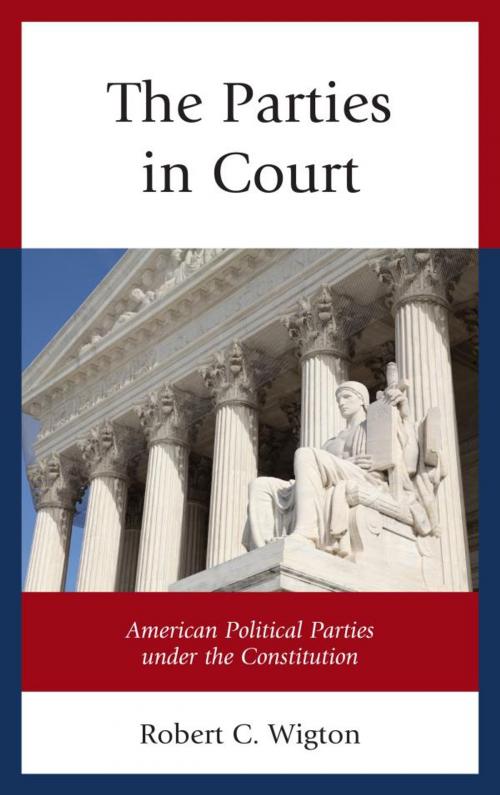The Parties in Court
American Political Parties under the Constitution
Nonfiction, Social & Cultural Studies, Political Science, Government, Political Parties| Author: | Robert C. Wigton | ISBN: | 9780739189689 |
| Publisher: | Lexington Books | Publication: | December 11, 2013 |
| Imprint: | Lexington Books | Language: | English |
| Author: | Robert C. Wigton |
| ISBN: | 9780739189689 |
| Publisher: | Lexington Books |
| Publication: | December 11, 2013 |
| Imprint: | Lexington Books |
| Language: | English |
American political parties have long existed in a gray area of constitutional law because of their uncertain status. Parties in this country are neither fully public nor fully private entities. This constitutional ambiguity has meant that political parties are considered private organizations for some purposes and public ones for others. This “public-private entity” problem has arisen in many different legal contexts over the years. However, given their case-by-case method of judicial review, courts have typically dealt with only very discrete parts of this larger problem. This work is an endeavor to describe and analyze the constitutional status of political parties in this country by synthesizing the best judicial and scholarly thinking on the subject. In the final chapter, I draw on these ideas to propose my own scheme for how political parties might be best accommodated in a democracy.
American political parties have long existed in a gray area of constitutional law because of their uncertain status. Parties in this country are neither fully public nor fully private entities. This constitutional ambiguity has meant that political parties are considered private organizations for some purposes and public ones for others. This “public-private entity” problem has arisen in many different legal contexts over the years. However, given their case-by-case method of judicial review, courts have typically dealt with only very discrete parts of this larger problem. This work is an endeavor to describe and analyze the constitutional status of political parties in this country by synthesizing the best judicial and scholarly thinking on the subject. In the final chapter, I draw on these ideas to propose my own scheme for how political parties might be best accommodated in a democracy.















